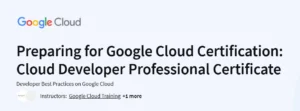What will you learn in Quick Start with Kubernetes Course
Understand Kubernetes fundamentals, architecture, and core components
Learn to deploy, scale, and manage containerized applications
Master key concepts like pods, services, deployments, and namespaces
Use kubectl and YAML to control clusters and troubleshoot issues
Build a strong foundation for working in cloud-native environments
Program Overview
Module 1: Introduction to Kubernetes
⏳ 1 week
Topics: What is Kubernetes, why use it, key concepts, architecture overview
Hands-on: Set up a local Kubernetes cluster using Minikube or Play with K8s
Module 2: Pods, Containers & Labels
⏳ 1 week
Topics: Pods, multi-container pods, labels, selectors
Hands-on: Create and run single and multi-container pods with labels
Module 3: Deployments & ReplicaSets
⏳ 1 week
Topics: Deployments, updates, rollbacks, scaling apps
Hands-on: Configure deployments and perform scaling using
kubectl
Module 4: Services & Networking
⏳ 1 week
Topics: ClusterIP, NodePort, LoadBalancer, service discovery
Hands-on: Expose applications via Kubernetes services and test networking
Module 5: ConfigMaps & Secrets
⏳ 1 week
Topics: Environment variables, injecting configs, securing sensitive data
Hands-on: Use ConfigMaps and Secrets to manage environment settings
Module 6: Namespaces & Resource Quotas
⏳ 1 week
Topics: Multi-tenancy, namespaces, resource quotas, limits
Hands-on: Create and manage namespaces with resource restrictions
Get certificate
Job Outlook
Kubernetes is essential for DevOps, Cloud, and Site Reliability Engineering roles
High demand in cloud-native infrastructure, especially with Docker and CI/CD
Common roles: Kubernetes Engineer, DevOps Engineer, SRE, Cloud Engineer
Salaries typically range from $100,000 to $160,000+ depending on experience
Specification: Quick Start with Kubernetes
|





